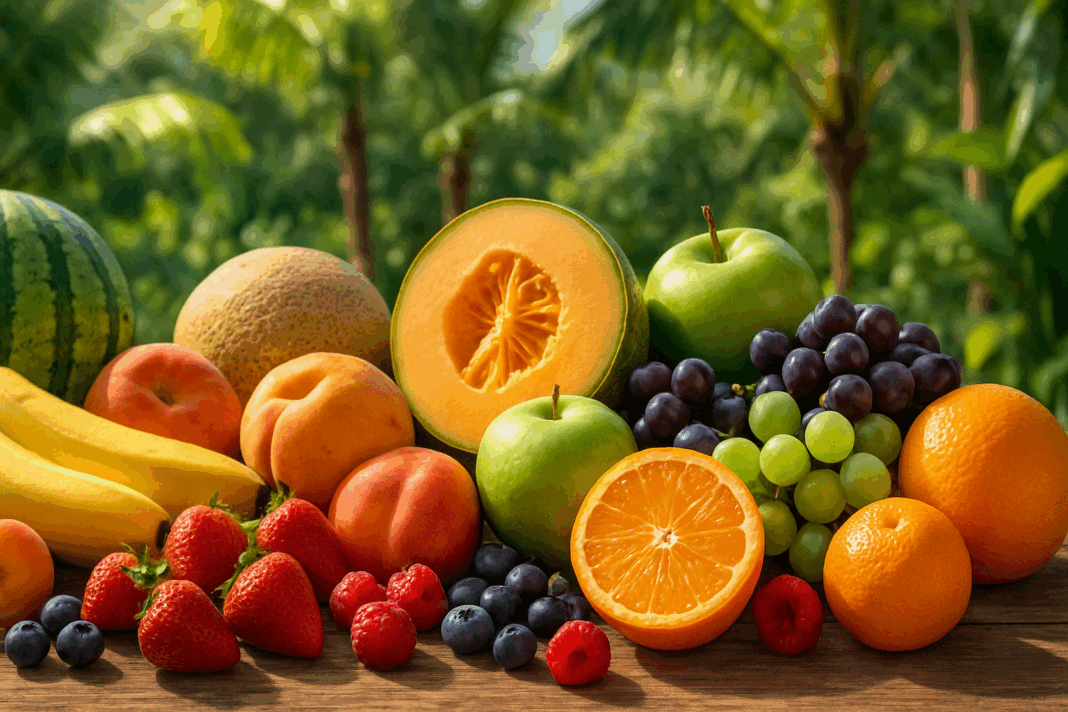Exploring the Health Benefits of a Fruit-Only Diet: A Scientific Look at Detox, Weight Loss, and More
The appeal of a fruit-only diet has captured the imagination of many seeking natural, plant-based approaches to health. From its role in ancient healing traditions to modern-day wellness movements, this minimalist yet nutrient-dense dietary style has gained popularity for its promise of detoxification, weight loss, and revitalization. But what does science say about the benefits and limitations of consuming just fruits? Can a fruit and water diet truly cleanse the body, or is this more myth than fact? This article delves deep into the scientific and nutritional insights behind the fruit diet, often known as the just fruit diet, to explore its real-world impacts on metabolism, energy, and long-term health outcomes.
You may also like: Best Foods for Cognitive Function: What Science Reveals About Brain Nourishment, Focus, and Mental Clarity
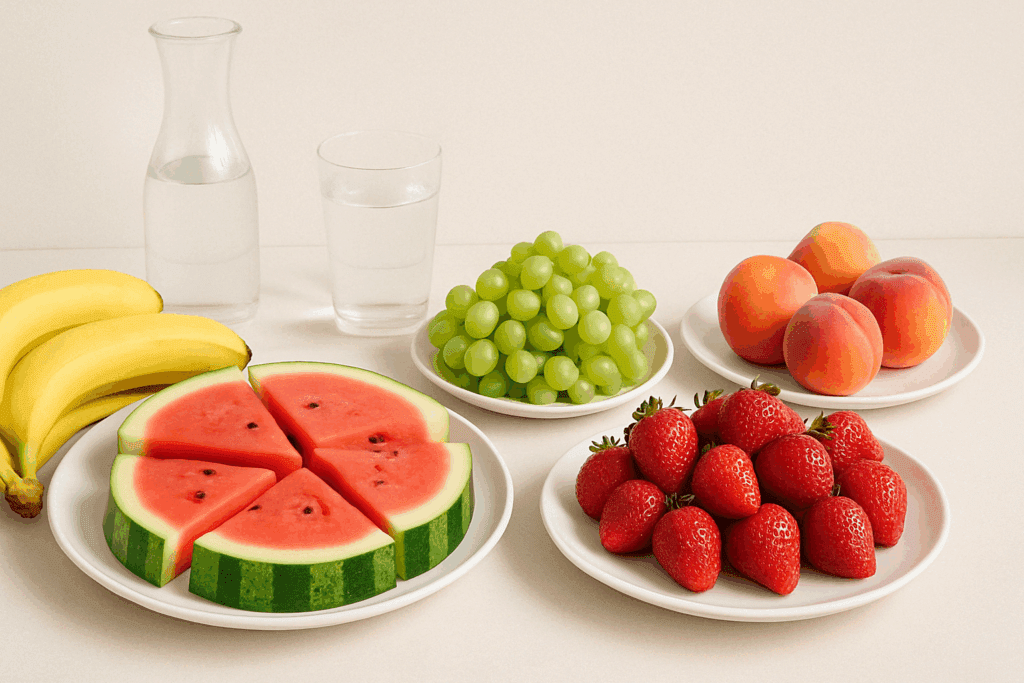
Understanding the Foundations of a Fruit-Only Diet
A fruit-only diet, also referred to as a fruit cleanse or fruit fasting, centers exclusively around the consumption of raw fruits. It often includes a broad variety of fresh produce—berries, citrus, melons, tropical fruits, apples, pears, and more—while excluding all processed foods, animal products, grains, legumes, and sometimes even vegetables. While some variations of the fruit diet allow raw vegetables or leafy greens, stricter versions rely solely on fruit and water, occasionally enhanced by intermittent fasting or mono-meals for digestive simplicity. This dietary strategy is praised for its high antioxidant content, low caloric density, and abundance of vitamins, minerals, and water-rich hydration support.
At the heart of this lifestyle lies the idea that fruits, being naturally high in water and fiber, help the body eliminate waste and support internal detoxification pathways. Unlike restrictive crash diets that often leave people feeling deprived or nutritionally depleted, a properly structured fruit-only diet offers a bounty of phytonutrients and enzymatic compounds that may facilitate better digestion, energy metabolism, and hormonal balance. While proponents of the fruit diet claim benefits like clearer skin, enhanced mental clarity, and rapid weight loss, scientific analysis helps differentiate between anecdotal experiences and substantiated biological mechanisms.

Fruit Diet for Weight Loss: A Closer Look at Caloric Density and Satiety
One of the most commonly cited advantages of a fruit-only diet is its role in promoting weight loss. Fruits are generally low in fat and calories, while being high in fiber and water, which creates a sense of satiety without contributing excessive energy intake. For those interested in a fruit diet for weight loss, this makes fruit a particularly effective choice for managing hunger while maintaining a calorie deficit. Additionally, the simplicity of the just fruit diet removes many calorie-dense processed foods and reduces the likelihood of overeating.
Scientific studies examining fruit intake and body composition reveal a consistent correlation between increased fruit consumption and lower body mass index (BMI). This is largely attributed to the way fruits impact appetite-regulating hormones such as leptin and ghrelin. For example, fiber from fruits slows gastric emptying and prolongs feelings of fullness, which in turn reduces overall caloric intake throughout the day. Moreover, the natural sugars found in fruits, such as fructose and glucose, are accompanied by fiber and polyphenols that moderate their absorption, unlike the rapid blood sugar spikes seen with refined carbohydrates.
In structured interventions, diets high in fruit and vegetable content have shown promise in supporting both fat loss and metabolic health. When combined with physical activity and adequate hydration, a fruit and water diet can amplify these benefits by enhancing hydration status and promoting the excretion of excess sodium and toxins. However, it is important to recognize that while the fruit diet for weight loss can be effective short-term, long-term adherence requires careful planning to avoid nutrient deficiencies, particularly in protein, omega-3 fats, and certain B vitamins.

The Science of Detoxification: Can a Fruit Cleanse Truly Work?
The concept of detoxing the body with a fruit cleanse often draws skepticism from the medical community, and rightly so. The liver, kidneys, lungs, and skin already work around the clock to eliminate waste and harmful substances. However, dietary choices can support—or hinder—these natural processes. While it’s misleading to suggest that a 3 day fruit fast can independently flush out all toxins, there is scientific merit to the idea that certain fruits contain compounds that enhance the efficiency of these built-in detox systems.
Fruits such as citrus, pomegranate, grapes, and berries are rich in antioxidants, including vitamin C, quercetin, and anthocyanins. These compounds neutralize free radicals and reduce oxidative stress, thereby easing the burden on the liver and supporting cellular repair. Some fruits also stimulate bile production, which helps the liver metabolize fats and carry waste products into the digestive tract for elimination. For example, lemon and grapefruit have been studied for their liver-boosting properties, particularly in animal models.
Fiber plays an equally crucial role in detoxification by binding to toxins and waste products in the colon and facilitating their removal through the stool. A fruit and vegetable fast, when properly structured, increases the intake of both soluble and insoluble fibers, supporting regular bowel movements and gut microbial diversity. These factors can improve systemic inflammation markers and reduce circulating levels of environmental pollutants. However, it’s essential to view a fruit cleanse not as a miracle cure but as a supportive tool in the broader context of a healthy lifestyle.
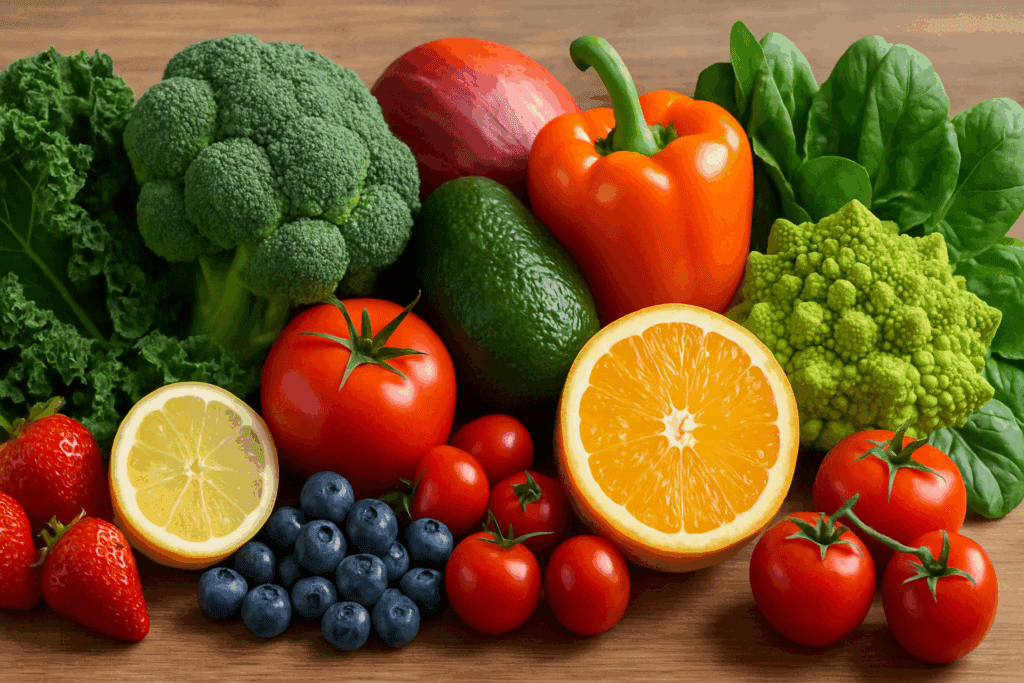
Nutritional Strengths of a Purely Veg and Fruit Diet
A purely veg and fruit diet offers several nutritional strengths that align with preventive health and chronic disease management. Fruits are abundant in essential micronutrients like potassium, magnesium, vitamin C, and folate. They also provide plant-based polyphenols that exhibit anti-inflammatory, anticarcinogenic, and cardioprotective properties. When combined with vegetables and legumes, this diet can yield a robust spectrum of phytonutrients that protect against oxidative damage and cellular aging.
One of the often-overlooked advantages of the fruit-only diet is its alkalizing effect on the body. Although the body maintains a stable blood pH, the metabolic byproducts of different foods can influence systemic inflammation. Fruits and vegetables produce alkaline residues that counterbalance the acid-forming effects of meat, dairy, and processed grains. In this sense, a fruit and veggie cleanse may contribute to a more favorable metabolic profile by reducing acid load, improving renal function, and preserving bone mineral density.
In populations adhering to plant-based diets, such as the Okinawans or certain raw food communities, fruit makes up a significant portion of daily caloric intake. Their lower rates of cardiovascular disease, diabetes, and certain cancers support the notion that a high intake of unprocessed plant foods—including fruit—is associated with longevity and resilience against chronic illness. While a purely veg and fruit diet may not meet all nutritional needs long-term without supplementation, it serves as a powerful short-term reset and foundational step toward whole-food eating.

Fruit Fasting Benefits: From Insulin Sensitivity to Digestive Rest
The practice of fruit fasting, whether in the form of a one-day reset or a 3 day fruit fast, offers a gentle and nourishing approach to intermittent calorie restriction. Unlike water-only fasts, which can be difficult and sometimes unsafe for certain populations, fruit fasting supplies energy and nutrients while still triggering many of the same metabolic benefits. These include improved insulin sensitivity, reduced oxidative stress, and the activation of cellular repair pathways such as autophagy.
By limiting the diversity of foods and focusing on easily digestible fruits, the gastrointestinal tract experiences a period of rest. This can reduce digestive inflammation, support microbial balance, and enhance nutrient absorption once a broader diet is resumed. Individuals suffering from bloating, sluggish digestion, or irregular bowel movements may benefit from a short-term fruit cleanse designed to ease digestive burden while reintroducing hydration and prebiotic fibers.
Emerging research also highlights the psychological benefits of fruit fasting. Simplicity in dietary choices can reduce decision fatigue, promote mindful eating, and break addictive cycles tied to processed or hyper-palatable foods. When practiced intentionally and with adequate hydration, a fruit and water diet may offer a low-risk entry point into longer-term dietary improvements, especially for individuals seeking to recalibrate their relationship with food.
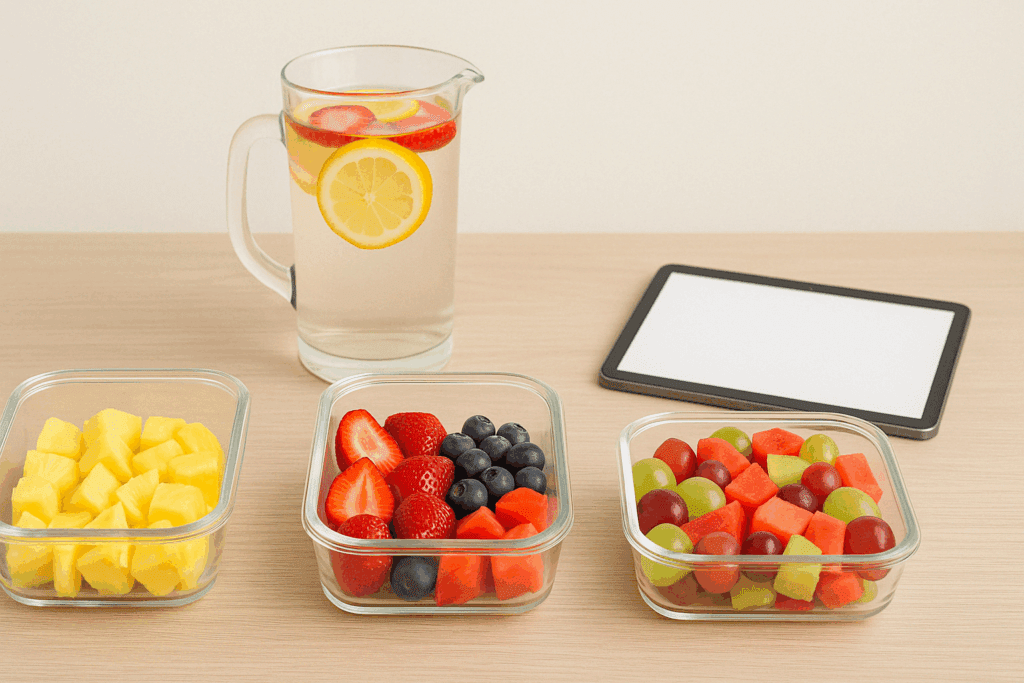
Balancing Benefits and Risks of a Fruit-Only Diet
Despite its many strengths, a fruit-only diet is not without limitations. The exclusion of other food groups—particularly protein-rich foods, essential fatty acids, and B12-containing animal products—can result in deficiencies if followed long-term without supplementation. Muscle preservation, hormonal balance, and cognitive performance all rely on nutrients that fruits alone cannot sufficiently supply. Therefore, while the fruit diet benefits many metabolic functions in the short term, its appropriateness for extended use should be evaluated on an individual basis.
Furthermore, those with certain health conditions, such as diabetes or insulin resistance, should exercise caution when adopting a fruit-heavy regimen. While whole fruits offer fiber and antioxidants, they are also sources of natural sugars that can affect blood glucose levels. A fruit diet for weight loss may yield initial reductions in insulin demand, but ongoing monitoring and personalized guidance are essential to avoid unintended consequences. Additionally, individuals with fructose malabsorption, digestive disorders, or eating disorders may not be suitable candidates for fruit fasting without professional oversight.
To mitigate these risks, some health practitioners advocate a hybrid model: the fruit and veggie cleanse. This version integrates leafy greens, cruciferous vegetables, and select root vegetables to provide additional fiber, minerals, and phytonutrients. This approach supports the digestive tract more comprehensively while still honoring the detox and hydration goals of a fruit-centric plan. Whether used as a seasonal reset or a guided nutritional experiment, it’s important to align any dietary protocol with evidence-based practices and individual health needs.
How to Safely Try a Just Fruit Diet or 3 Day Fruit Fast
For those curious about trying a fruit-only approach, starting with a short-term plan like a 3 day fruit fast can provide a low-commitment way to explore the benefits. Preparation is key: reducing intake of caffeine, alcohol, and processed foods in the days leading up to the cleanse can ease the transition and minimize detox symptoms. During the fast, prioritizing a wide range of fruits—such as high-water-content melons in the morning, energy-rich bananas in the afternoon, and antioxidant-rich berries in the evening—can help maintain nutrient diversity.
Hydration is equally critical. A true fruit and water diet means maintaining consistent fluid intake alongside fruit consumption. Adding a pinch of sea salt to water or infusing it with lemon or cucumber can help balance electrolytes and prevent fatigue. Some individuals also benefit from gentle movement like walking or yoga to support lymphatic flow and enhance circulation during a fruit cleanse.
After the cleanse, reintroducing whole foods gradually is essential. Starting with steamed vegetables, plant-based proteins, and whole grains allows the digestive system to adapt and retain the benefits of the fast. Documenting personal observations—such as mood, energy, digestion, and sleep quality—can offer valuable insights into how one’s body responds to a fruit-forward approach. Consulting a registered dietitian or integrative health provider ensures safety and sustainability.
FAQ: Exploring the Benefits and Practical Insights of Fruit and Water Diets
- What are the main benefits of following a fruit and water diet? A fruit and water diet can have several health benefits, particularly in promoting detoxification and hydration. This type of diet can help cleanse the body, enhance digestion, and provide a natural energy boost through the high fiber and vitamin content found in fruits. Additionally, the fruit and vegetable fast component can help reduce inflammation and improve skin health by flushing out toxins. A fruit cleanse, when followed for a short period, can also support weight loss efforts by limiting calorie intake while offering a nutrient-dense variety of foods. Moreover, a fruit-only diet can promote improved gut health due to the abundance of fiber, which aids digestion and regulates bowel movements. Combining fruits with water can aid in optimizing hydration levels, contributing to improved kidney function and overall well-being.
- Is a fruit diet effective for long-term weight loss? While a fruit diet for weight loss can yield initial results due to its low-calorie, high-fiber nature, it may not be sustainable for long-term success if followed excessively. However, a balanced approach, where fruit is part of a larger, nutrient-rich diet, can support weight management goals over time. The 3-day fruit fast, for example, can kickstart weight loss by promoting fat burning and detoxification, but it’s essential to reintroduce other food groups afterward for sustained benefits. A purely veg and fruit diet may help in the short run, but diversifying with proteins and healthy fats is critical to avoid nutritional deficiencies. For those aiming for consistent weight loss, it’s essential to consult with a healthcare provider to ensure that such diets are balanced and provide all necessary nutrients.
- Can a fruit-only diet provide all necessary nutrients? While a fruit-only diet can be rich in vitamins, antioxidants, and fiber, it lacks certain essential nutrients like proteins, fats, and some vitamins such as B12 and D, which are vital for long-term health. The fruit and veggie cleanse might offer detox benefits, but it’s crucial to recognize that such diets should not be followed for extended periods without supplementing with other nutrient-dense foods. For a more complete nutrient profile, it’s advisable to incorporate vegetables, lean proteins, and healthy fats into the diet. For example, a fruit and vegetable fast may be more balanced than a fruit-only diet by adding a broader range of micronutrients and macronutrients that fruits alone cannot provide.
- How does a fruit cleanse compare to other detox methods? A fruit cleanse, especially when paired with water, is one of the gentler detox methods, focusing on natural ingredients like fruits and vegetables to remove toxins from the body. Unlike harsher detox methods, the fruit diet benefits from providing the body with necessary nutrients while still encouraging the elimination of waste products. The 3-day fruit fast can serve as an effective reset for people seeking to reduce processed food intake and give their digestive systems a break. However, other detox methods may be more targeted toward specific health concerns, such as juicing or fasting with herbs. Ultimately, the fruit and vegetable fast is an excellent introductory detox method for individuals looking to clean up their diet in a more holistic, natural way.
- Can a fruit and veggie cleanse help improve skin health? Yes, a fruit and veggie cleanse can significantly impact skin health, especially when followed as part of a longer-term balanced diet. Fruits like berries, citrus, and watermelon are rich in antioxidants, which combat free radicals and reduce inflammation in the body, leading to clearer and healthier skin. A fruit diet, with its high water content, also helps keep the skin hydrated, contributing to a radiant appearance. Over time, the fruit and vegetable fast may also reduce acne breakouts by supporting the detoxification process. If followed for several days, this type of cleanse can be a valuable tool in improving the overall texture and tone of your skin by removing impurities from within.
- What are the potential risks of following a just fruit diet for an extended period? A just fruit diet, while beneficial in the short term for detoxification and weight loss, can lead to nutritional imbalances if followed for too long. Fruits are primarily composed of sugar in the form of natural fructose, which may spike blood sugar levels, especially when consumed in large quantities without the balancing effect of protein or healthy fats. Extended periods on a fruit-only diet may cause deficiencies in essential nutrients like protein, fats, and certain vitamins and minerals, potentially leading to muscle loss and impaired immune function. A fruit and veggie cleanse may offer a more balanced approach by including a broader spectrum of nutrients. It is important to ensure that any restrictive diet is complemented by professional guidance to avoid these health risks.
- How can I incorporate a fruit diet for weight loss without causing blood sugar imbalances? To incorporate a fruit diet for weight loss without causing blood sugar imbalances, it’s important to focus on low-glycemic fruits, such as berries, apples, and pears, which have a minimal impact on blood sugar levels. Pairing fruits with protein-rich foods like nuts or seeds can slow down the absorption of sugars, helping to maintain stable blood glucose levels. A fruit and water diet is an excellent way to stay hydrated while still focusing on weight loss, but it should be approached with balance. Limiting the intake of high-sugar fruits, such as bananas or grapes, and opting for fiber-rich options will allow you to enjoy the benefits of a fruit-only diet without the risk of insulin spikes. Additionally, combining this diet with regular exercise and mindful portion control will enhance its effectiveness for weight loss.
- What are some practical tips for starting a fruit and vegetable fast? Starting a fruit and vegetable fast requires careful planning to ensure that your body receives the nutrients it needs while still enjoying the benefits of detoxification. Begin by gradually reducing processed foods from your diet and focusing on fresh, whole fruits and vegetables. For a 3-day fruit fast, focus on hydrating fruits like watermelon, citrus fruits, and cucumbers, while incorporating leafy greens and cruciferous vegetables for added fiber and nutrients. Drinking plenty of water throughout the fast will further support your detox goals and keep your energy levels stable. It’s crucial to listen to your body during a fruit and veggie cleanse and to avoid over-restricting your food intake, which can lead to nutrient deficiencies or fatigue.
- How does a fruit and water diet help with detoxification? A fruit and water diet promotes detoxification by encouraging the body to eliminate waste and toxins naturally. Fruits like lemons, berries, and apples are rich in antioxidants and fiber, which help cleanse the digestive system and support liver function. The high water content in the diet not only keeps you hydrated but also helps flush out toxins through urine and sweat. A fruit cleanse, when followed in conjunction with water intake, ensures that the body stays hydrated, which is vital for the detox process. This combination of hydration and nutrient-dense fruits can leave you feeling more energized and refreshed, while also promoting clear skin and improved digestion.
- Can I maintain the benefits of a fruit diet without fasting?
Yes, maintaining the benefits of a fruit diet without fasting is possible by incorporating fruits regularly into your meals. A balanced approach is to consume a variety of fruits along with other nutrient-dense foods, such as vegetables, whole grains, and lean proteins. This allows you to enjoy the detoxifying and weight-loss benefits of fruits while ensuring you meet all your nutritional needs. For example, a purely veg and fruit diet can be sustainable by including a mix of vegetables like leafy greens and cruciferous varieties to provide fiber and micronutrients. Regularly consuming fruits with high water content also promotes hydration and supports skin health, making it an excellent way to maintain a healthy lifestyle without the need for extreme dietary measures.
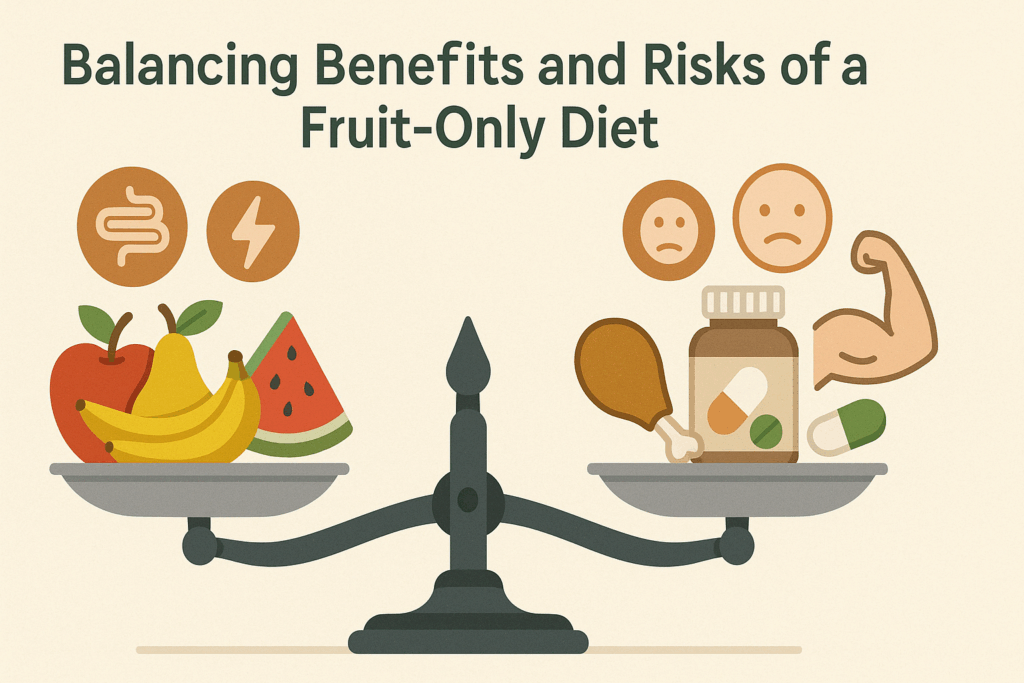
Reflecting on the Science and Potential of a Fruit-Centered Lifestyle
The appeal of the fruit-only diet lies not just in its simplicity, but in its potential to reset the body and reorient dietary habits toward nature’s most vibrant foods. Whether pursued for weight management, detox support, or spiritual clarity, the practice of fruit fasting offers more than just a cleanse—it offers a mindful return to the basics of nourishment. When practiced responsibly, the fruit and water diet and similar fruit-based approaches can support metabolic renewal, reduce dietary inflammation, and elevate hydration.
The fruit diet benefits are especially pronounced in structured, short-term applications like the 3 day fruit fast, which combines satiety, nutrient density, and metabolic efficiency. For individuals struggling with dietary overwhelm or processed food dependence, the simplicity of a just fruit diet can restore focus and intention to eating patterns. Likewise, a fruit and vegetable fast provides a more balanced iteration for those seeking a longer-term lifestyle upgrade without nutritional compromise.
While a purely veg and fruit diet may not serve as a long-term solution for everyone, its strategic implementation—under guided care—can be a powerful adjunct to holistic health practices. As science continues to explore the intersections between nutrition, detoxification, and chronic disease prevention, fruit-forward diets remain an area ripe with opportunity for research and real-world application.
Was this article helpful? Don’t let it stop with you. Share it right now with someone who needs to see it—whether it’s a friend, a colleague, or your whole network. And if staying ahead on this topic matters to you, subscribe to this publication for the most up-to-date information. You’ll get the latest insights delivered straight to you—no searching, no missing out.
fruit-based diet science, plant-based detox nutrition, metabolic effects of fruit fasting, natural cleansing diets, raw food cleanse benefits, antioxidant-rich fruits, high-fiber plant diets, elimination diet reset, low-calorie whole foods, nutrient-dense detox plans, cellular repair fasting, hydration and fruit synergy, vegan cleansing protocols, glucose and fruit balance, fruit mono-meal benefits, short-term plant fasts, polyphenol-rich foods, sugar and fiber balance, simplified clean eating, natural digestive rest
Further Reading:
Whole Fruits and Fruit Fiber Emerging Health Effects
Health Benefits of Fruits and Vegetables
Disclaimer: The content published on Better Nutrition News (https://betternutritionnews.com) is for informational and educational purposes only. It is not intended as a substitute for professional medical advice, diagnosis, or treatment. Always seek the guidance of a qualified healthcare professional before making any changes to your diet, nutrition, or wellness practices. The opinions expressed by authors and contributors are their own and do not necessarily reflect those of Better Nutrition News.
Better Nutrition News and its affiliates make no representations or warranties regarding the accuracy, completeness, or reliability of the information provided. We disclaim all liability for any loss, injury, or damage resulting from the use or reliance on the content published on this site. External links are provided for reference purposes only and do not imply endorsement.


